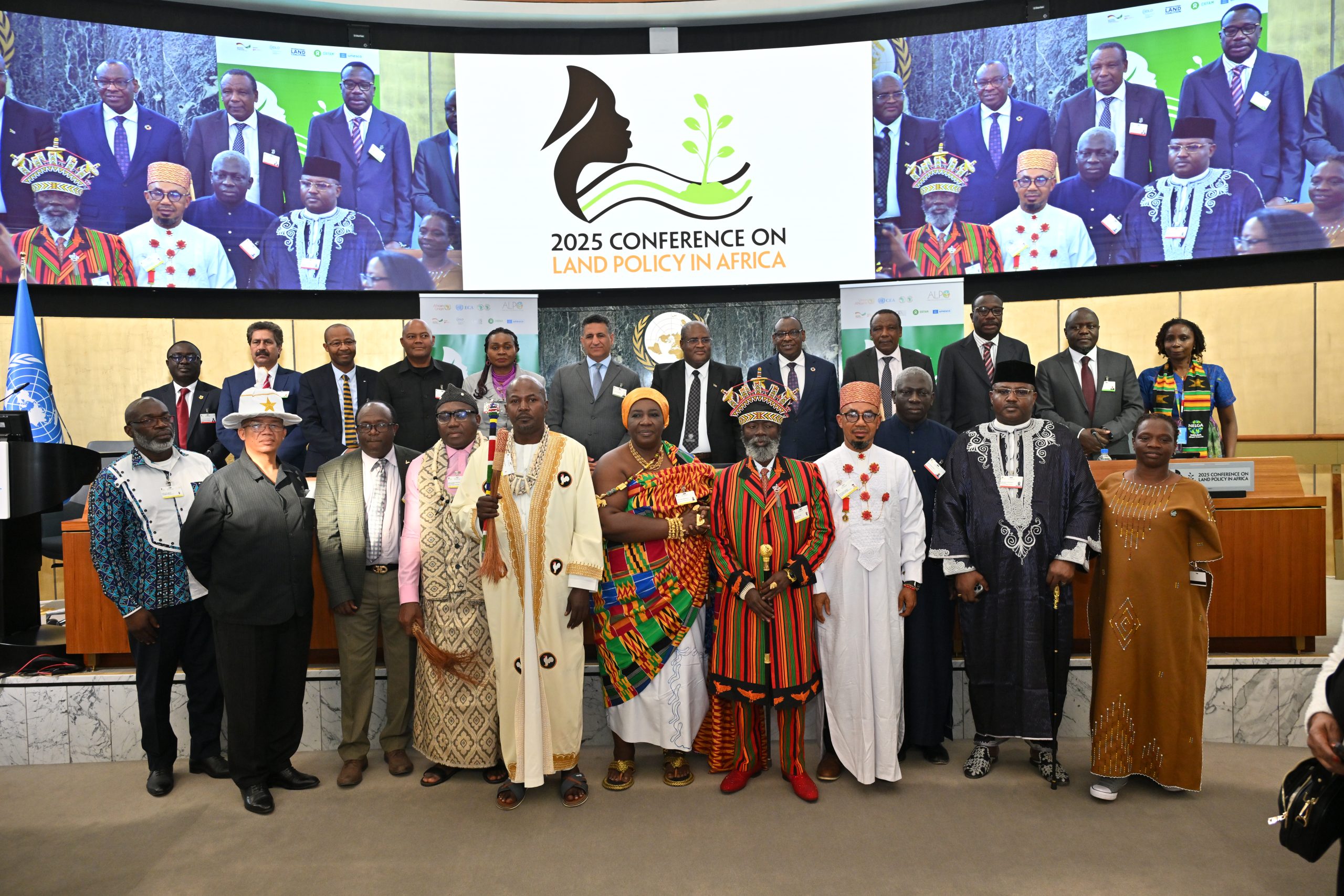Traditional Leaders Rejecting Colonial Continuities in Africa’s Land Governance

“Land belongs to the ancestors for the unborn. It is only under the custody of those who are alive,” said His Royal Highness Drani Stephen Izakari of Uganda, capturing the essence of Africa’s enduring relationship with land.
At the 2025 Conference on Land Policy in Africa (CLPA 2025), the Network of Excellence on Land Governance in Africa (NELGA) convened scholars and traditional leaders to reflect on a decade of progress in strengthening Africa’s land governance systems. The session underscored the vital role of traditional leaders in managing customary land which accounts for up to 90% of land in many African countries and in ensuring that local values, justice, and identity remain central to governance.
Discussions drew lessons from Zambia’s dual tenure system, Cameroon’s borderland governance, Ghana’s urban land challenges, and Nigeria’s initiatives to harmonize customary law. Speakers noted that while customary systems have sustained community cohesion and stewardship for generations, they continue to face challenges linked to colonial legacies, such as unclear succession, limited legal recognition, and exclusion of women and youth.
Participants emphasized the need for collaboration between governments, traditional institutions, and academia to align customary and statutory systems. Researchers were called upon to bridge indigenous knowledge and formal frameworks to promote inclusive and sustainable land management.
The message was clear: for Africa’s land governance to be just and resilient, it must embrace its traditional custodians those who have protected the land for the past, the present, and the future.